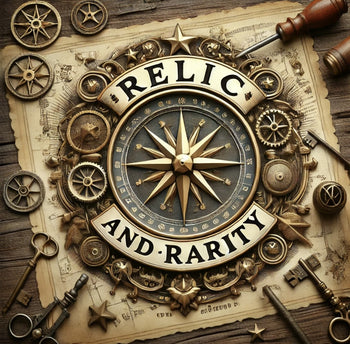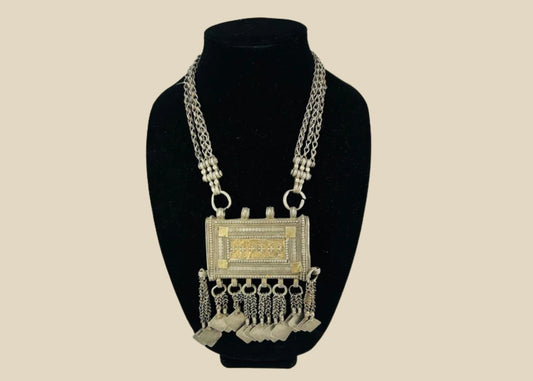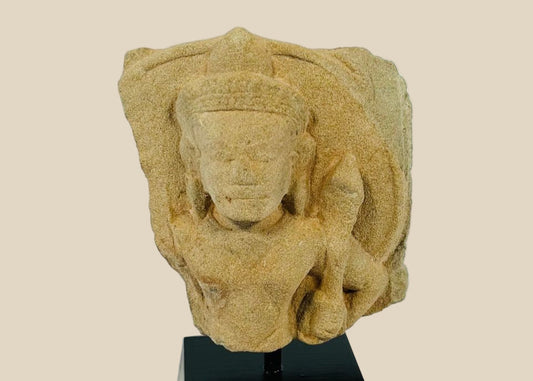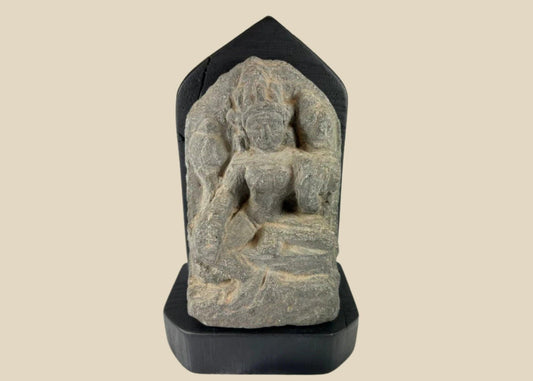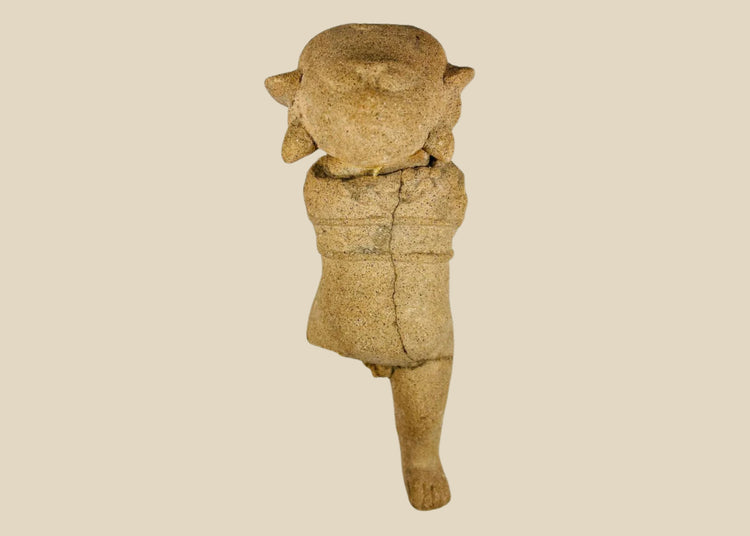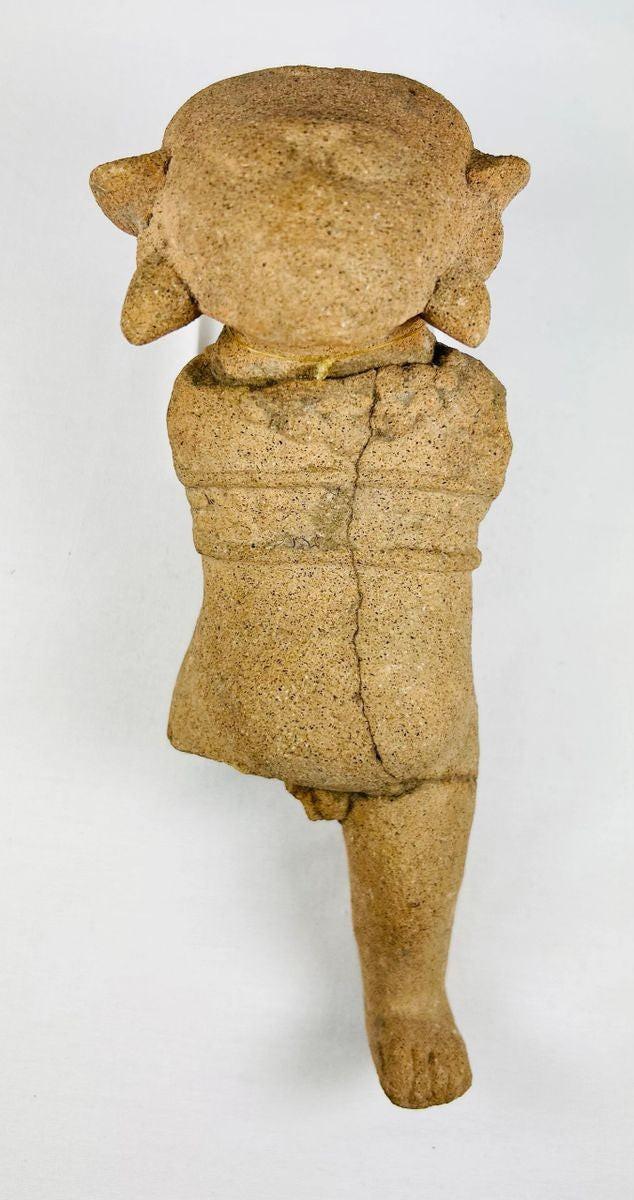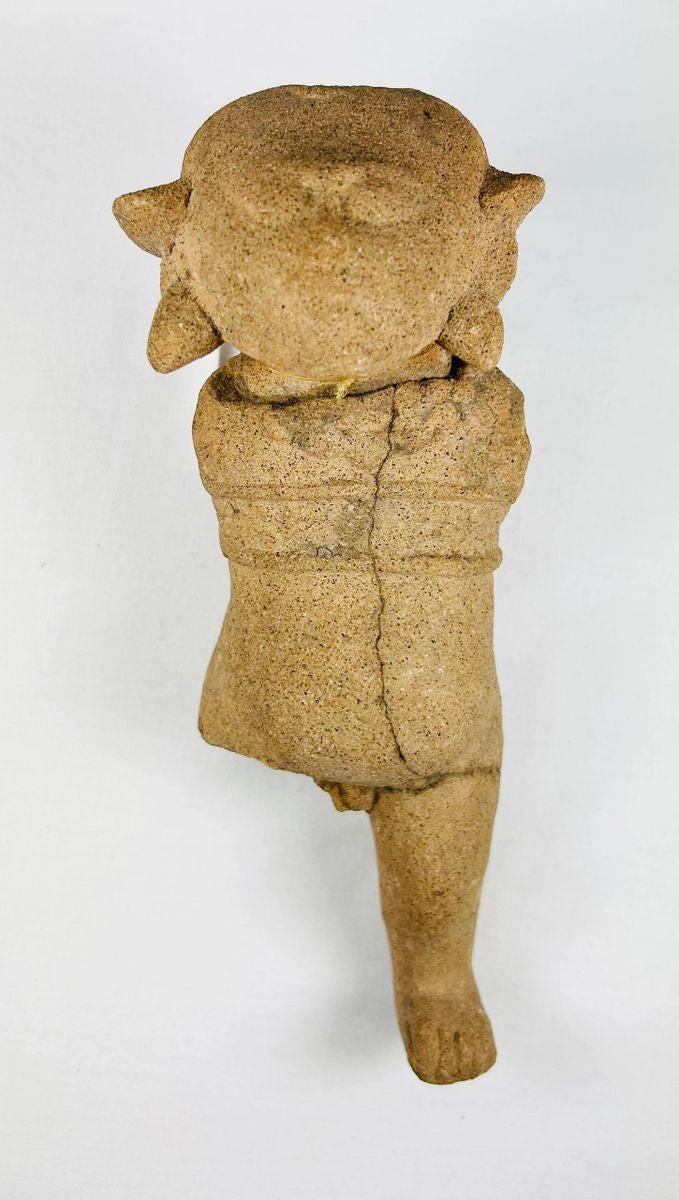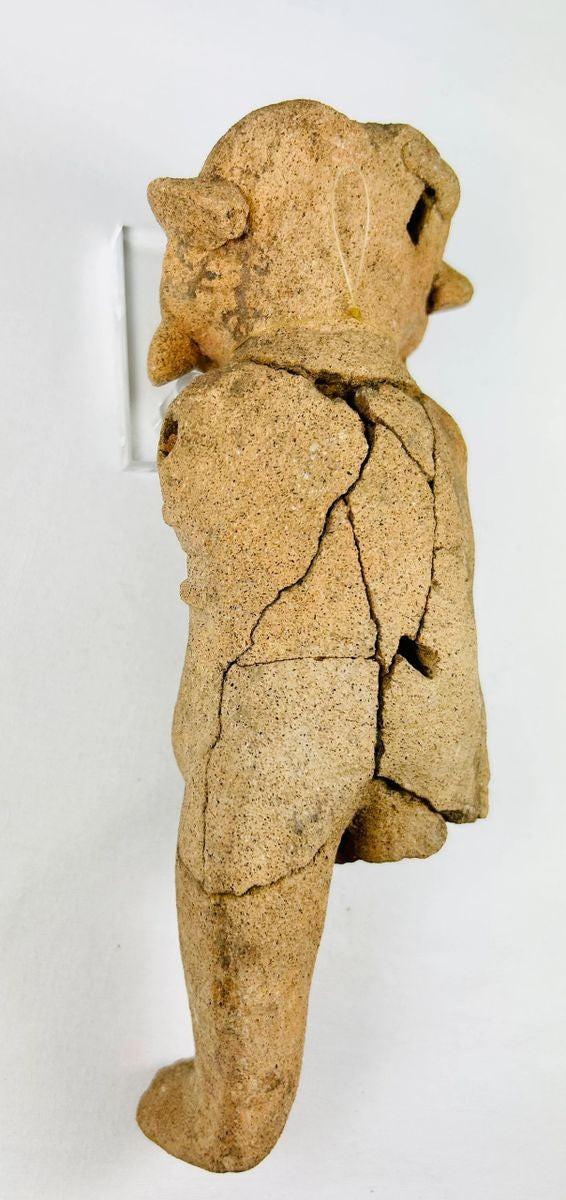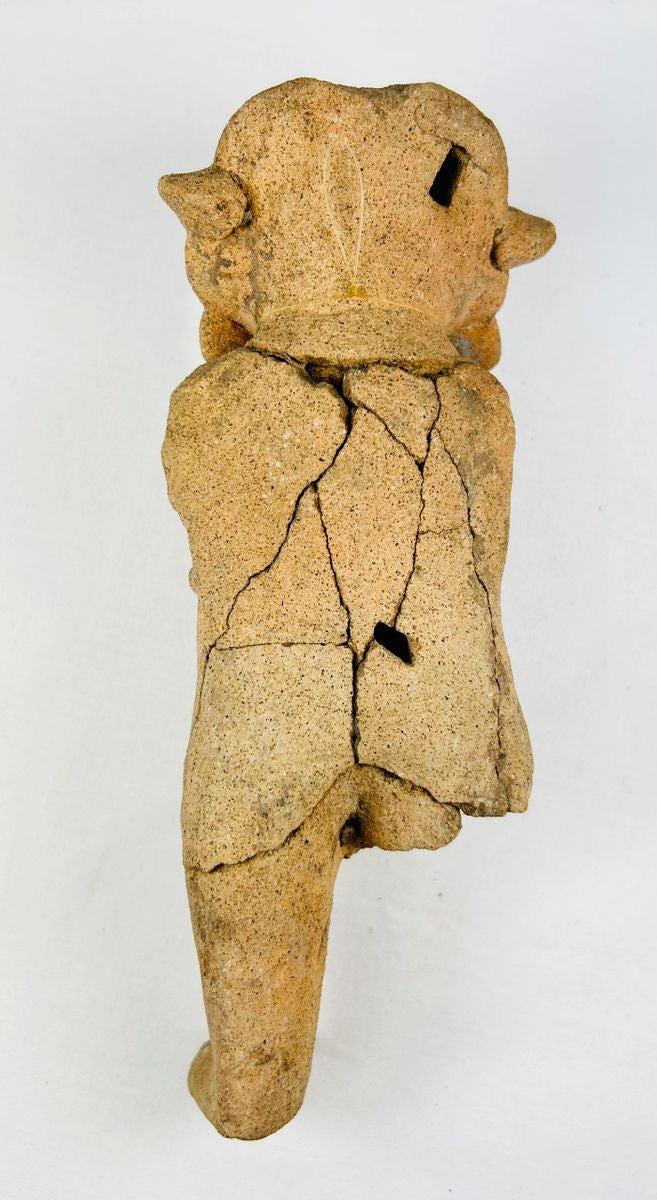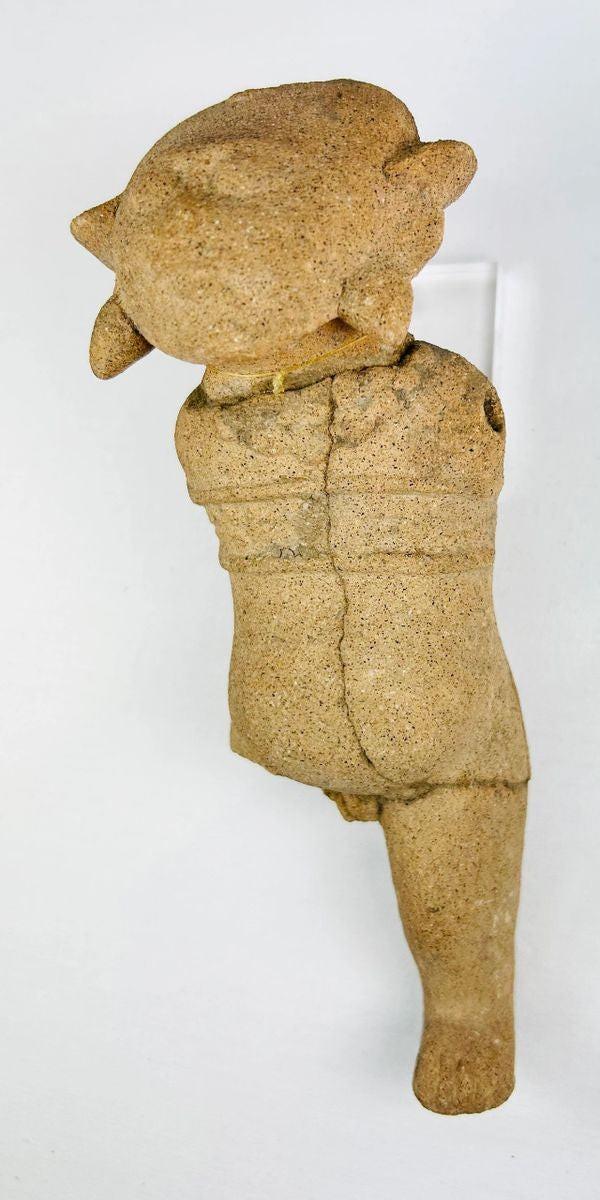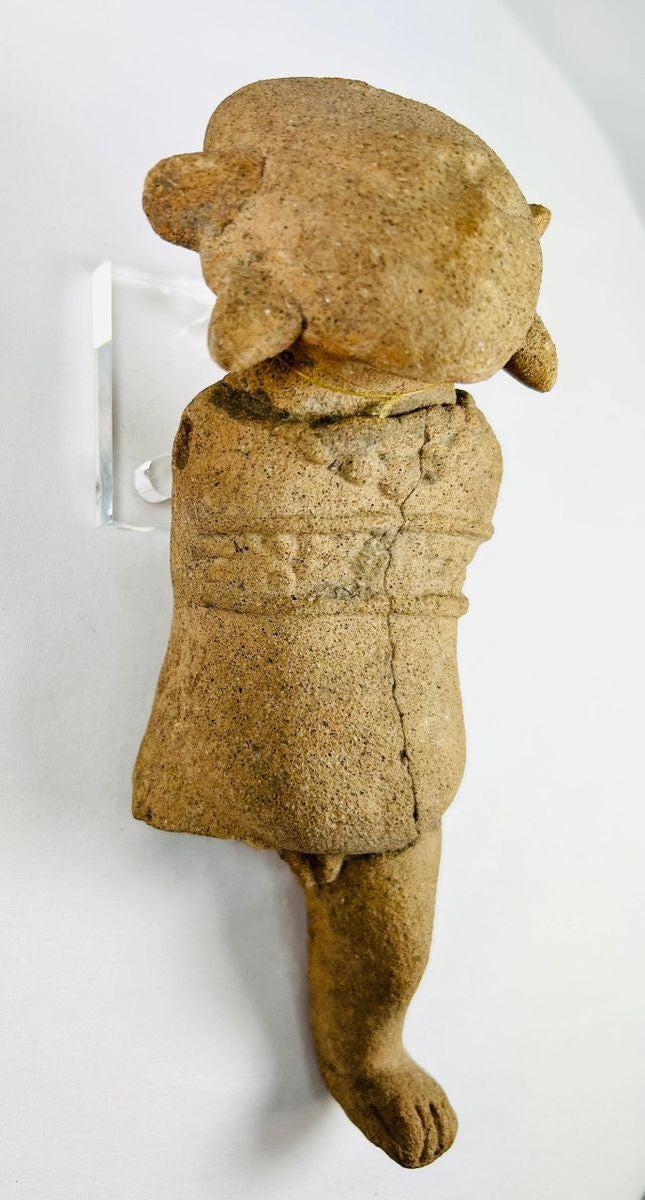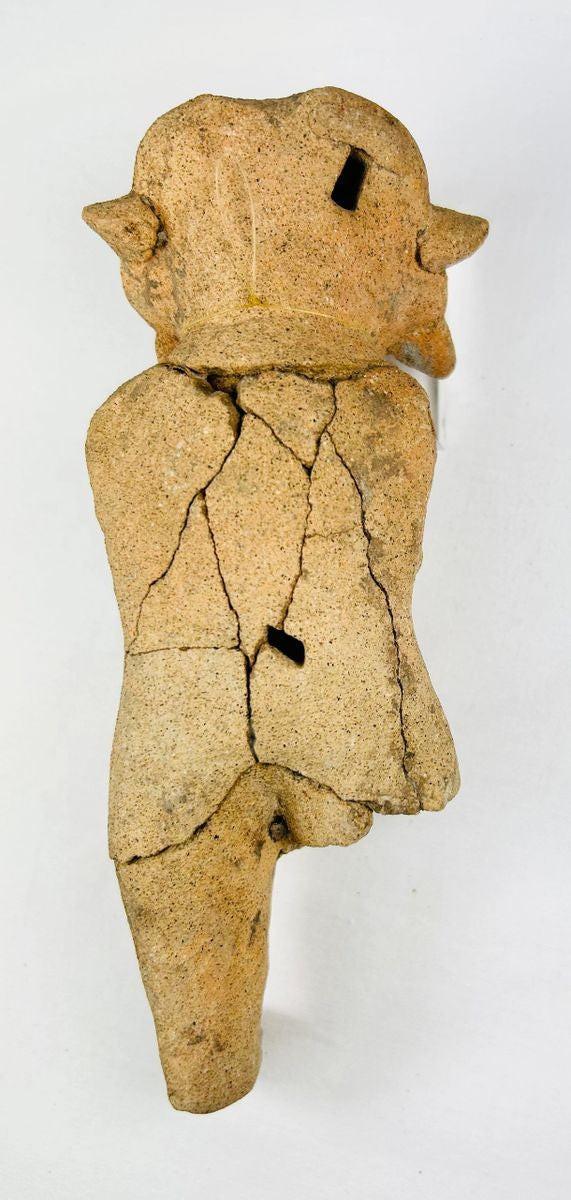Pre-Columbian | Mesoamerican | Ceramic Figurine | Circa 500–1500 CE
Description
More
Less
Historical Context & Origin
Region: Mesoamerica (likely Mayan or Zapotec)
Material: Terracotta
Period: Circa 500–1500 CE
Description
This rare Pre-Columbian ceramic figurine reflects the spiritual, artistic, and cultural sophistication of ancient Mesoamerican civilizations. Carefully crafted from terracotta, the figure displays stylized facial features, expressive eyes, and a unique headdress, suggesting a ritual or symbolic role. Such figurines were integral to ceremonial life, serving as offerings, representations of deities, or symbolic guardians in the religious practices of the Maya or Zapotec peoples.
Features
- Stylized facial features with expressive eyes and a shaped mouth
- Detailed body proportions reflecting symbolic or ritual significance
- Unique headdress or adornment, possibly denoting divine or ceremonial identity
- Hand-molded terracotta with subtle detailing and aged surface patina
Cultural Significance
Pre-Columbian figurines played a vital role in ritual practice, embodying spiritual beliefs and reinforcing cultural identity. This example likely functioned as a votive or ceremonial object, used in offerings or religious contexts to honor deities or ancestral spirits. The craftsmanship and symbolic design highlight the profound role of art in Mesoamerican society, where daily life was interwoven with ritual and spirituality.
Condition
The figurine is well-preserved, showing surface wear and minor cracks consistent with age. Professional restoration has reinforced its structure while maintaining authenticity. The restored areas confirm its antiquity and ensure its long-term preservation.
Dimensions (approximate)
Height: 8 in
Age
Circa 500–1500 CE
Description
Historical Context & Origin
Region: Mesoamerica (likely Mayan or Zapotec)
Material: Terracotta
Period: Circa 500–1500 CE
Description
This rare Pre-Columbian ceramic figurine reflects the spiritual, artistic, and cultural sophistication of ancient Mesoamerican civilizations. Carefully crafted from terracotta, the figure displays stylized facial features, expressive eyes, and a unique headdress, suggesting a ritual or symbolic role. Such figurines were integral to ceremonial life, serving as offerings, representations of deities, or symbolic guardians in the religious practices of the Maya or Zapotec peoples.
Features
- Stylized facial features with expressive eyes and a shaped mouth
- Detailed body proportions reflecting symbolic or ritual significance
- Unique headdress or adornment, possibly denoting divine or ceremonial identity
- Hand-molded terracotta with subtle detailing and aged surface patina
Cultural Significance
Pre-Columbian figurines played a vital role in ritual practice, embodying spiritual beliefs and reinforcing cultural identity. This example likely functioned as a votive or ceremonial object, used in offerings or religious contexts to honor deities or ancestral spirits. The craftsmanship and symbolic design highlight the profound role of art in Mesoamerican society, where daily life was interwoven with ritual and spirituality.
Condition
The figurine is well-preserved, showing surface wear and minor cracks consistent with age. Professional restoration has reinforced its structure while maintaining authenticity. The restored areas confirm its antiquity and ensure its long-term preservation.
Dimensions (approximate)
Height: 8 in
Age
Circa 500–1500 CE
You May Also Like
